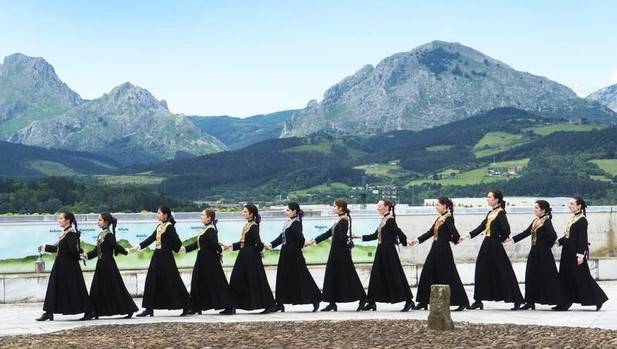This act, institutional but also ritual, takes place when they are fulfilled 400 years of the liberation of the last women held for witchcraft in the prison of Astola in 1618, as a reflection of the importance of healing “old” wounds in the collective memory that demand a new narrative and a consolation, albeit symbolic, of what has been lived. On this occasion, the presence of women in the institutional act already denotes a change in the starting point and an inclusive and compassionate vision towards those who live, think and act differently. In this sense, thank the popular initiative and the institutional presence: the president of Gerediaga, Nerea Mujika, of the General Councils of Bizkaia, Ana Otadui, of the Mancomunidad and Aitor López, who read the manifesto in favor of equality between men and women and freedom of thought and that they put a voice and face to a declaration of intent signed by and for all.
It took 400 years to bury, “forget”, unearth, remember, forgive and honor these women (and also some men), who in our day are the ones who continue to suffer violence, persecution and prejudice for reasons of gender, race, religion, ideology, … etc. The saying goes that it is better late than never, but perhaps what it means is that the moment only comes when the moment is. The music and dance of the group of women, from different dance groups, who dressed in black were in charge of sealing this episode in history to the beat of the soka-dance is emotional.
Amalurra Community

